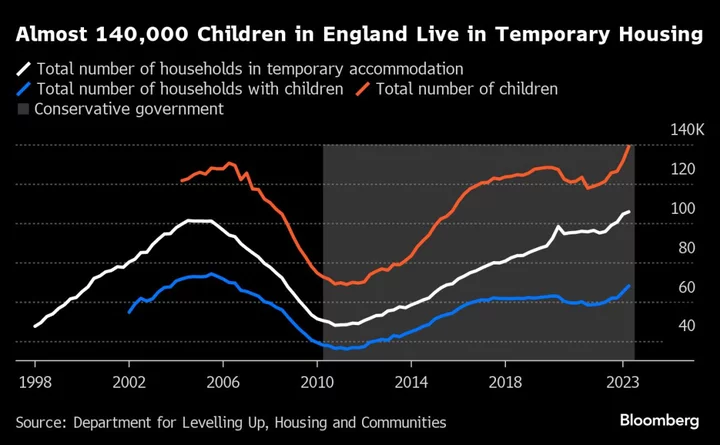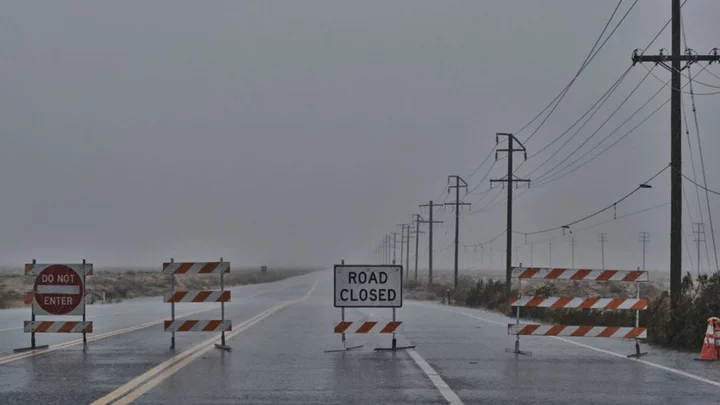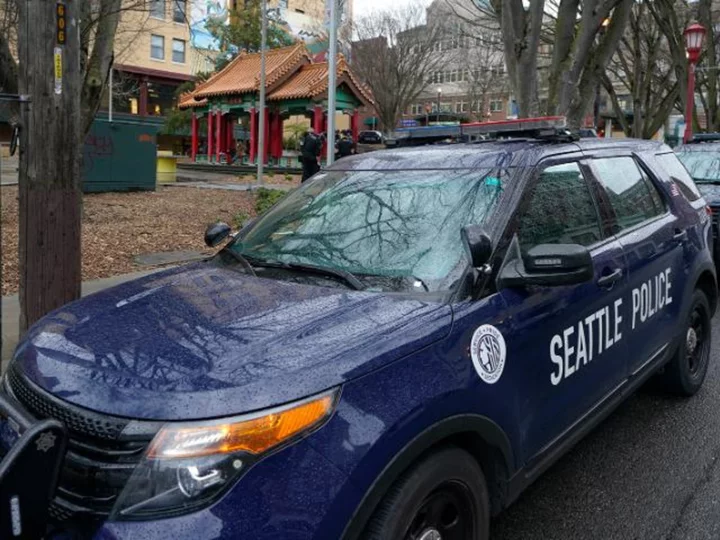The number of children living in temporary accommodation in England has reached a record high, according to new statistics that pile fresh pressure on Prime Minister Rishi Sunak.
The Department for Levelling Up, Housing and Communities said 138,930 children were without a permanent home at the end of June, up from 131,500 at the end of March and 14% more than a year earlier.
Overall, 105,750 households were in temporary accommodation, the highest number in data going back to 1998. The figure has more than doubled since the Conservatives came to power in 2010.
Shelter, a homelessness charity, said 7,500 families with children are living in hostels and Bed & Breakfasts, where entire families are cramped in one room, forced to share beds and deal with safety hazards such as faulty electrical wiring and mould. It repeated its call for the government to commit to building 90,000 genuinely affordable social homes a year.
“Today we’ve hit yet another shameful record in the housing emergency, with nearly 139,000 children now facing spending Christmas without a safe and secure place to call home,” Polly Neate, Shelter’s chief executive, said in an statement. “Decades of failure to build enough social homes combined with record-high private rents has resulted in more and more families being plunged into homelessness.”
Sunak has been on the backfoot since his former Home Secretary Suella Braverman described rough sleeping as a “lifestyle choice,” one of the reasons she was later fired from his government. Under her plans, the government’s new Criminal Justice Bill — designed to replace the Georgian-era Vagrancy Act — originally included plans for a crackdown on charities supporting rough sleepers.
Those plans were shelved after a backlash against Braverman’s comments. Now Parliament is debating whether it should strengthen the powers for police or local authorities to move rough sleepers and beggars out of the area if they are deemed to be a “nuisance.”
Earlier this month, the Royal Institution of Chartered Surveyors said tenants probably will have to shoulder a 4% increase in rent in the next year across the UK, reflecting a shortage of available properties and a jump in demand. But the figures also indicated rent increases may be nearing their peak.
Safe Place
“Everyone deserves a safe place to call home, that’s why we are spending £2 billion over three years as part of a cross-government strategy to build homes for rough sleepers, give financial support for people to find a new home, and prevent evictions,” a government spokesman said in an email.
He added that the government is building affordable homes and pointed to an announcement last week where the Local Housing Allowance was increased, so 1.6m low-income households will be around £800 ($1,011) a year better off on average next year.
The statistics also show a total of 73,660 households were assessed as requiring help from their local authority due to being homeless or threatened with losing their accommodation. Meanwhile, 34,850 were assessed as being threatened with homelessness, including 6,640 at risk due to a no-fault eviction notice.
The government has promised to ban that type of notice under the Renters Reform Bill which is also currently going through Parliament.









